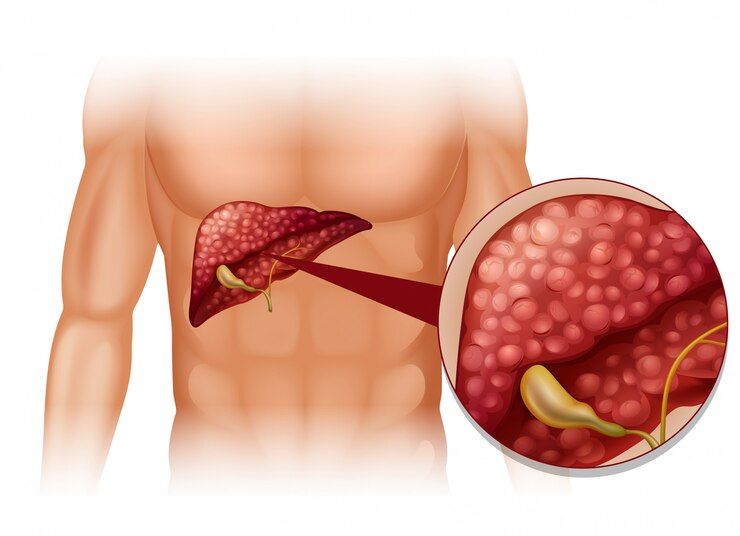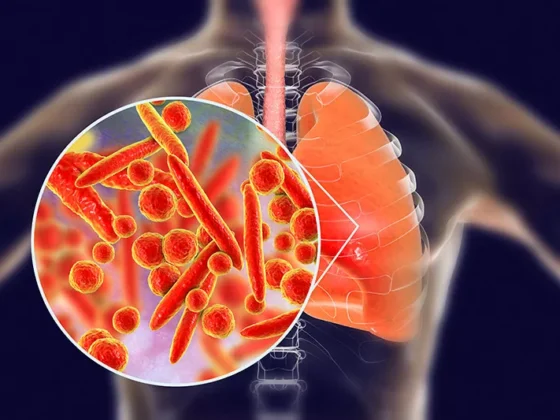New Delhi, 13 November 2024: Experiencing liver pain can be alarming and often raises important questions about what it might mean for your health. It becomes especially crucial to understand the reasons behind sudden liver aches, particularly when they occur at night. What causes liver pain? Why is it often felt at night? What symptoms are typically associated with liver problems? How can you accurately pinpoint liver pain? And why is it important to seek medical attention? This article aims to answer these questions and shed light on the symptoms of liver pain, especially focusing on what sudden liver discomfort at night could signify.
What Triggers Sudden Liver Pain?
Sudden liver pain can arise from several underlying health issues. Commonly, it can result from liver inflammation, fatty liver disease, infections, or even tumors. Each of these conditions can cause discomfort in the liver area, situated in the upper right side of your abdomen. It’s important to note that liver pain is sometimes confused with discomfort originating from other organs like the gallbladder or pancreas. Therefore, accurately determining the source of the pain is crucial for effective treatment.
Identifying Liver Pain Symptoms
Being aware of liver pain symptoms is key to early detection. Typical signs include a dull ache or sharp pain in the upper right abdomen, swelling, and tenderness in the area surrounding the liver. Additional symptoms may consist of jaundice (a yellowing of the skin and eyes), fatigue, nausea, and changes in the color of urine or stool. If these symptoms suddenly appear at night, it might indicate an acute situation that requires immediate medical care. Early recognition of these symptoms can lead to more effective treatment options and better outcomes.
The Importance of Nighttime Pain
Feeling liver pain at night can be particularly distressing. This timing could indicate that the liver is under strain or that an existing condition is deteriorating. Nighttime pain can disrupt your sleep and heighten anxiety, making it all the more essential to reach out to a healthcare professional. Certain liver conditions, like hepatitis or cirrhosis, may cause pain that becomes more pronounced at night due to body position changes or increased blood flow to the liver during sleep. Understanding this characteristic of liver pain can help you better communicate your symptoms to healthcare providers.
When to Get Medical Attention
It’s vital to recognize when to seek medical help for liver pain. If the discomfort is persistent, severe, or paired with other symptoms such as fever, vomiting, or confusion, getting immediate medical attention is critical. Early diagnosis and intervention can prevent complications and improve the effectiveness of treatment. Regular check-ups and liver function tests are also beneficial for monitoring liver health and catching potential issues before they escalate.
Diagnostic Tests for Liver Pain
When you consult a healthcare provider for liver pain, they may recommend a variety of diagnostic tests to determine the underlying cause. This may include blood tests to assess liver function, as well as imaging studies like ultrasounds or CT scans, and in some cases, liver biopsies. These tests are essential for identifying the specific liver condition and guiding the right treatment. Understanding this diagnostic process can ease some of the anxiety associated with liver pain and clarify the subsequent steps.
Treatment Options for Liver Conditions
Treatment for liver pain and its causes varies greatly based on the diagnosis. For conditions like fatty liver disease, lifestyle modifications such as dietary changes and increased physical activity might be suggested. If liver infections are involved, antiviral medications could be necessary. In more severe cases, like cirrhosis or liver tumors, a more aggressive approach, including surgery or chemotherapy, may be required. Working closely with a healthcare provider ensures that you receive customized treatment that aligns with your specific condition and overall health status.
To conclude with, recognizing and understanding liver pain symptoms, particularly sudden discomfort at night, is crucial for maintaining good health. Being aware of potential causes and symptoms can empower you to seek timely medical advice, leading to better health outcomes. Prioritizing liver health through regular check-ups, a balanced diet, and a healthy lifestyle can substantially lower the risk of liver-related issues. If you experience sudden liver pain, don’t hesitate to reach out to a healthcare professional for assistance and support.











